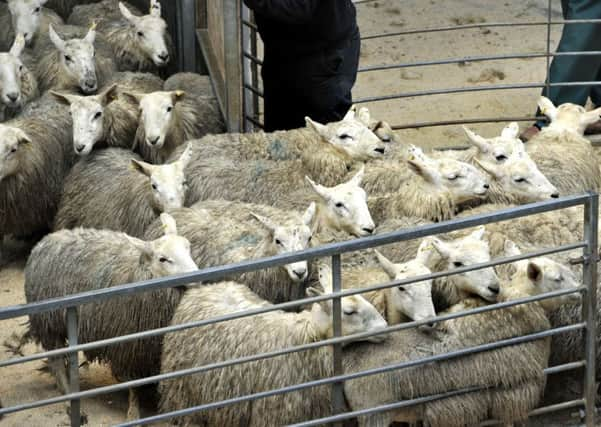Sheep sector is following in the footsteps of Dolly
This article contains affiliate links. We may earn a small commission on items purchased through this article, but that does not affect our editorial judgement.


A £1.2 million research project has produced a high resolution gene “atlas” offering fresh insights into the genetic code of sheep which could mark a significant step in accelerating breeding programmes aimed at improving their health and productivity.
• READ MORE: Farming news
Work on animal genomics, which allows DNA data to be used to guide breeding programmes, has also been increasingly used in the fish farm and dairy industries in recent years – and the Scottish Government’s beef efficiency scheme hopes to provide similar benefits for the suckler cow sector.
Advertisement
Hide AdAdvertisement
Hide AdHowever, Professor Alan Archibald of the Roslin Institute – home of Dolly, the world’s first cloned sheep – said that, with the exception of some work in New Zealand, the sheep industry had not yet taken advantage of this science.
He said that while the work which was published this week might take several years to filter down to farm level, the insights could eventually inform animal breeding programmes aimed at improving farmers’ stocks, and pointed out that the impact of genomics on livestock industries around the world had probably surpassed the effect it had had in medical research.
Dr Emily Clark, project co-ordinator, said that the results represented a major step towards understanding how sheep’s genetic information influences physical traits.
“Sheep have more than 20,000 different genes but not all of these are expressed in each tissue type in the body,” she said.
“The findings also help shed light on the function of the hundreds of genes whose role was previously unknown.”
The work also looked at untangling some of the secrets of hybrid vigour which are often used in the commercial sheep sector, with cross and composite breeds playing a key role in many areas of the sheep industry.
• READ MORE: ‘Let’s go for a bright sheep industry in Scotland’
Advertisement
Hide AdAdvertisement
Hide Ad“And this could help us understand which breed types might offer the best crossing potential,” said Clark.
Archibald added that by improving the efficiency of feed utilisation and possibly reducing ruminants’ production of the greenhouse gas, methane, the important role played by sheep and cattle in converting poorer quality grasslands unsuitable for growing other crops into edible protein could help add to food security around the globe.
Organic producers demand extension to feed derogation
Organic pig and poultry producers face a major threat to their animal health and welfare unless the European Commission rolls over a derogation allowing the industries to use a small proportion of non-organic feed, it has been claimed.
And there was an industry-wide call yesterday for the current derogation, in place for a number of years, to continue to allow the feeding of organic pig and poultry with up to 5 per cent non-organic protein.
Without Commission intervention, these derogations will revert back at the end of the year to original regulation which requires a 100 per cent organic diet, a move which would threaten both sectors, especially organic egg production which had increased markedly in recent years.
National Pig Association chief executive Zoe Davies said: “It is vital for the organic pig sector that these derogations are extended to ensure that producers can continue to control the welfare and diet of their animals.
“Without these derogations, there are serious concerns that the pig and poultry sectors would not be able to source the right nutrition to give their animals the best possible diet.”
• READ MORE: Scots organic food producers hail surge in demand
Advertisement
Hide AdAdvertisement
Hide AdAnd English NFU deputy president Minette Batters said: “Organic producers would like nothing more than to use 100 per cent organic feed but they don’t want to do this at the expense of their animals’ health and welfare, which is why an extension is so important.”
She added that, together with the NPA and industry experts, the NFU had met with government officials to stress these concerns and ensure the voice of the organic pig and poultry sector was heard.